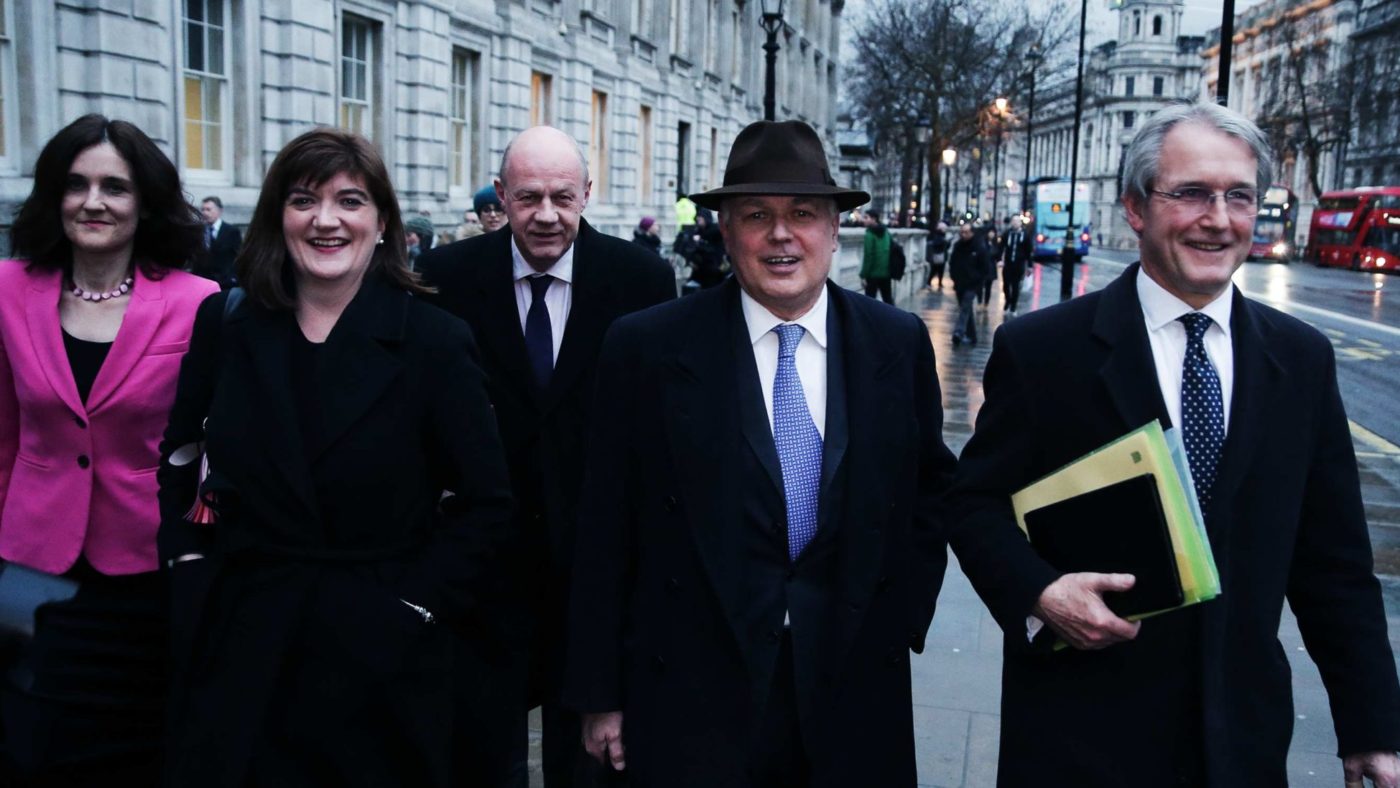We are finally entering the Article 50 endgame and the next two weeks will be immensely important in the multi-dimensional standoff that Brexit has become. Brussels’ eyes will be following next week’s votes in Westminster closely in judging how much, if at all, they decide to move on the backstop.
After being told by Parliament to renegotiate the backstop within the Withdrawal Agreement, the Prime Minister’s trip to Brussels this week yielded little more than a promise that there would be further discussions about what a majority of MPs might accept, with a view to a conclusion by the end of the month. The EU continues to suggest it is open to changes to the Political Declaration on the Future Partnership rather than to the Withdrawal Agreement, despite MPs’ instruction that the backstop is the problem. This may be semantics. Is adding a new protocol or mini-treaty on the backstop “reopening” the Withdrawal Agreement, or not?
Open Europe has published a series of recommendations on what the UK might ask for to improve the backstop and which the EU might agree to. Neither the “Malthouse compromise” nor a unilateral exit mechanism are likely to be runners with the EU, but Brexiteers are right to suggest that there needs to be far stronger provisions to replace the proposed temporary customs union with “alternative arrangements” in the future. The UK should seek a legally-binding protocol, setting out a roadmap for exploring, testing and implementing the technology and systems that could provide “alternative arrangements” to the backstop.
The existing deal only offers the relatively weak promise that the Withdrawal Agreement “does not aim” at a permanent relationship. The UK should seek to obtain a stronger guarantee from the EU – again through a binding protocol or mini-treaty – that the backstop can only be temporary as a matter of law. Indeed, under EU law, exit negotiations conducted during Article 50 cannot constitute the basis of a permanent future relationship. The working assumption should be that the backstop should not be in place beyond 2029, unless there is joint agreement to extend. The UK and EU could reference the provision in international law that interim arrangements should not last longer than 10 years, except in exceptional circumstances. This would provide the UK with a valuable tool to challenge the EU if it sought to trap the UK in the backstop long-term.
But before the UK is able to broach these possible changes, Brussels is waiting to see what happens in Westminster next Thursday when MPs will again jostle to influence the Brexit process. Perhaps the more significant, if less remarked upon, of European Council President Donald Tusk’s utterances this week was that “there is no political force and no effective leadership for Remain”.
Brussels no longer sees reversal or a second referendum as a possible outcome. This leaves a renegotiation of the deal or No Deal as the only alternatives. And the EU’s position on the Irish border under a No Deal is a hopeless mess it desperately wants to avoid. It’s not clear whether Ireland would be asked to impose checks on the North or whether Irish goods would face checks at continental ports.
EU leaders and officials are undoubtedly hoping that, rather than having to move significantly on the backstop, a softer, cross-party Brexit is on the horizon and, failing that, a UK request for extension of Article 50 to put off or avoid No Deal is likely. Both would take the pressure off the EU and put the ball back in the UK’s court.
With no new UK-EU agreement to consider next week, loyalist Conservative backbench MPs who are backing the PM’s deal and who are opposed to No Deal will face a test of nerve. Will they again resist attempts to force the Government to provide an Article 50 extension or not? As it did last week, the Government will no doubt reassure these MPs that they will have another opportunity to vote on whether the UK leaves without a deal.
Labour leader Jeremy Corbyn’s suggestion that under certain conditions he would support, or at least sanction, support for a deal from the Opposition benches, further complicates the equation. How many Labour votes would this deliver? Presumably not enough to completely discount the number of Conservative rebels and Democratic Unionist MPs who might be convinced to back a deal with changes to the backstop. But when do the Government and loyalist MPs pursue this Labour olive branch, at the risk of a fundamental split within the Tory party?
Hard-line Brexiteers appear to remain confident that No Deal is the default in the absence of their demand for wholesale removal of the backstop. But, surely, if the Government and the EU detect no appetite whatsoever amongst Brexiteers for any negotiable compromise on the backstop, a softer Brexit becomes ever more likely?
CapX relies on the generosity of its readers. If you value what we do, please consider making a donation.


